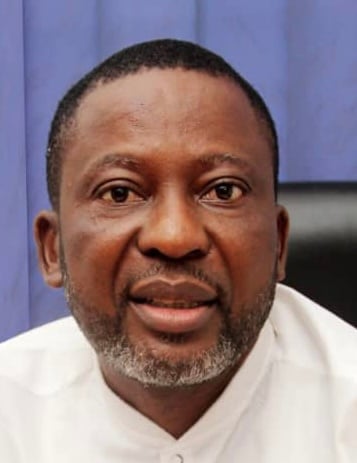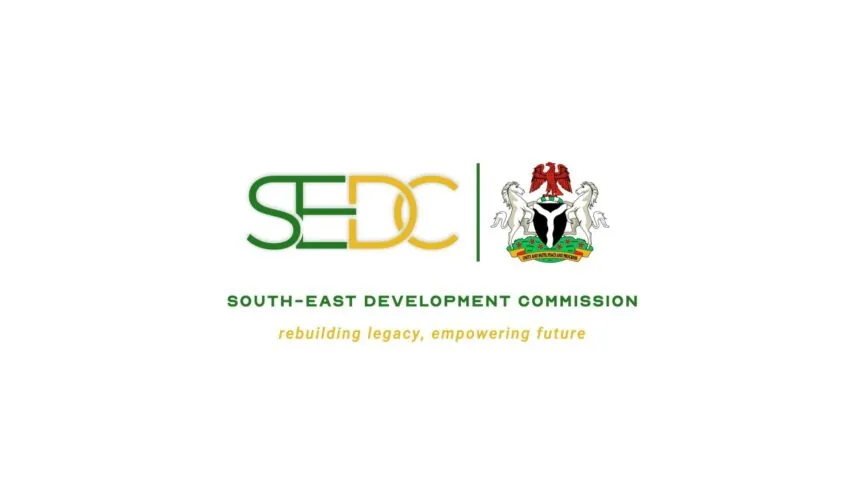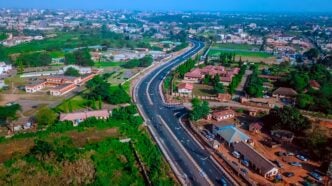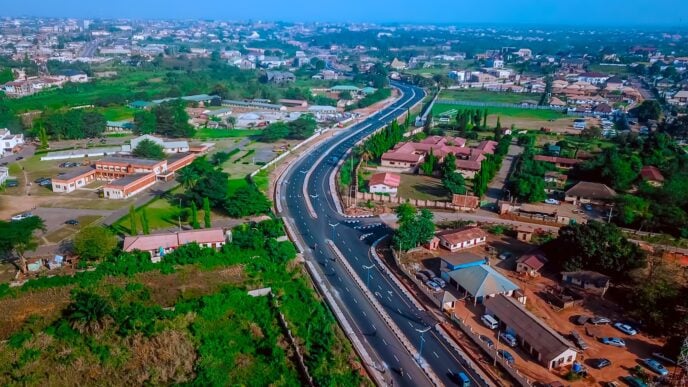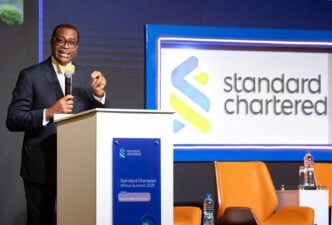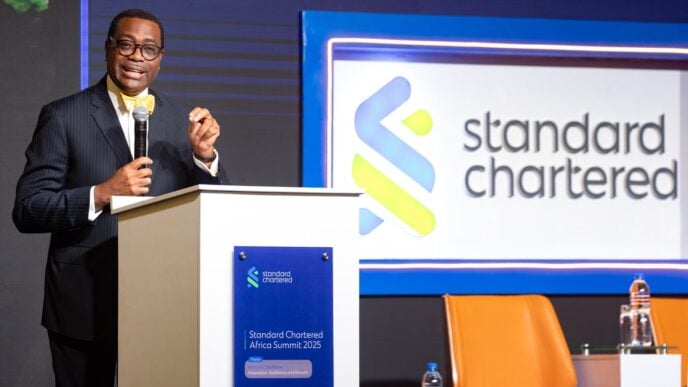The South East Development Commission (SEDC) was established in 2024 as symbol of the federal government commitment to fast-tracking development in the South East and addressed perceived marginalization of the region.
But symbols must translate into action. To do so, the SEDC must shed the cloak of politics, craft a bold and transparent development agenda, and return the South East to its rightful path of prosperity.
Anything less would betray not only the hopes of the people but also the very purpose for which the Commission was established.
The South East holds a unique place in the nation’s history, a region rich in human capital, entrepreneurial zeal, and cultural resilience, yet, scarred by the Nigerian Civil War, decades of neglect, and recent waves of insecurity, terrorism, and economic dislocation.
Advertisement
The establishment of the South East Development Commission (SEDC) therefore signaled a bastion of hope, not just a policy decision. It represents a statement of intent by the Federal Government for inclusiveness, heal old wounds, rebuild battered infrastructure, and provide a foundation for lasting prosperity.
Despite the lofty vision, the SEDC still struggles with the absence of a clear, people- driven agenda. Much of its work has remained tentative; and to use aviation register, the aircraft is still taxing instead of the expected bullet take-off.
There has been minimal awareness creation to sensitize South Easterners across all demographics and socio-economic strata.
Advertisement
For a region where unemployment and underemployment have been fingered as key drivers of insecurity, banditry and migration of young people to other regions especially Lagos and Abuja, the Commission’s silence in mobilizing its people raises serious concerns.
The SEDC Act was signed into law by President Bola Ahmed Tinubu on July 24, 2024, marking the official creation of the Commission. The Board was inaugurated on February 12, 2025, ushering in full operational status with Mark Okoye, former Director General of Anambra State Investment Promotion & Protection Agency, as pioneer Managing Director.
The Board includes Dr. Emeka Nworgu, Chairman, Edward Onoja, member, Stanley Ohajuruka (Executive Director, Finance), , Ugochukwu Agballa, member, , Chief Sylvester Okonkwo, ED Corporate Services , Hon. Toby Okechukwu, ED, Projects and Dr. Clifford Ogbede, ED Natural Services among others.
The SEDC targets scaling the region’s GDP from about $40 billion to $200 billion by 2035, requiring $10 billion yearly investments for over 30 years to bridge its infrastructure gap.
Advertisement
To drive faster growth and development through sustained funding, the South East Investment Company (SEIC) was also established with a target base of $1 billion and $50 million Venture Capital Fund to support youth-led and inclusive innovation and grassroots sports & youth infrastructure project (SEGRID).
Also in July 2025, SEDC unveiled a 10-year Integrated Regional Development Roadmap, with UNDP and other partners. Its aim includes creating a unified one-region, one-market economy across the five South Eastern states: Abia, Anambra, Ebonyi, Enugu, and Imo.
The Commission also hopes to engage stakeholders: state governments, private sector, civil society, donor agencies in constructive dialogue to prioritize the needs of the region at a macro level and needs of communities at micro level. SEDC also plans to register over 3,500 volunteers to support program delivery.
By its statutes, the commission is to establish offices in all the state capitals of the eastern states to enhance its visibility and operational efficiency, yet those offices so far are either non-existent or are not known to those who should visit them for inquiry and support.
Advertisement
The Nigerian Civil War (1967–1970) left deep scars on the South East: physical, economic, and psychological. While other regions benefited from sustained federal attention, the South East struggled with neglected infrastructure, economic marginalization, and recurring environmental disasters, particularly gully erosion.
The idea behind the Commission draws inspiration from post conflict reconstruction models across the world. Much like the Marshall Plan that rebuilt Europe after World War II or Rwanda’s comprehensive recovery strategy after its genocide, the SEDC was conceived as a vehicle to drive infrastructural renewal, human capital development, and economic reintegration of a region long battered by the fallout of the Civil War and subsequent years of underdevelopment.
Advertisement
Its aims and objectives are clear: to rebuild critical infrastructure and social services, to promote industrialization and economic diversification, to empower youths and women through education, skills acquisition, and entrepreneurship, to foster unity, healing, and reintegration within Nigeria’s socio-political framework.
However, a critical danger looms: the presence of politically exposed persons on board. This raises the fear of politicization of the activities of SEDC and derail its lofty plans to fast-track broad development of the region as envisaged by the spirit and letter of its establishment.
Advertisement
This approach mirrors the mistakes of the Niger Delta Development Commission (NDDC), once hailed as a solution for the oil-rich Niger Delta, but now mired in allegations of corruption, mismanagement, and political capture.
For the SEDC to avoid this trap, it must adopt a professional and technocratic driven structure that prioritizes competence over political patronage. A people- centered agenda cannot thrive if the Commission becomes a cash cow for elites.
Advertisement
Around the world, development commissions have proven transformational when shielded from political interference. The Reconstruction Finance Corporation in post-Depression America, the Marshall Plan in Europe, the Rwanda’s National Unity and Reconciliation Commission and the South Korea’s Economic Planning Board in the 1960s that transformed a war-torn nation into an economic powerhouse by prioritizing industrialization and human capital all succeeded because they were driven by a clear vision, accountability, and citizen engagement.
The SEDC must borrow a leaf from these models if it is to avoid becoming another missed opportunity.
The South East today faces not just economic stagnation but chronic insurgency, banditry, and separatist agitations. Every violent disruption tears away at the fabric of the region’s economy, driving away investors and further alienating its people.
In this context, the Commission has an even more urgent role to restore hope and chart a recovery path.
Practical steps the commission would take include Youth Empowerment through digital and entrepreneurial skills acquisition. It should establish regional innovation hubs to harness the creativity of young people, create access to venture capital funds for startups in agriculture, ICT, manufacturing, trading and vocational training centers to reduce unemployment and curb the lure of crime and insurgency.
The Nwa boi (apprenticeship), an age-long practice of training and mentorship in trading, should be given a more formal structure in line with emerging global best practices.
The Commission will also need to establish Infrastructure as the backbone of growth by constructing intra-regional railways and expressways linking all five South East states, investing in renewable energy and power projects to drive small industries, rehabilitating critical social infrastructure such as schools, hospitals, and water systems.
It has to also pursue ecological rehabilitation and climate resilience by aggressively addressing over 2,500 active erosion sites, which threaten lives and livelihoods, launching afforestation and drainage projects to protect farmlands and urban settlements, while also prioritizing community inclusion and awareness.
There may also be need to partner with churches, traditional rulers, and youth groups for effective mobilization.
The South East Development Commission stands at a critical juncture: it could become the engine that drives post-war healing, job creation, and economic revival in a region long underserved. But that promise hinges on action, not rhetoric.
With strong leadership, robust funding, and public engagement, SEDC can deliver real transformation. Should it falter, it risks reinforcing the very marginalization it was created to undo.
The people of the South East do not need handouts; they need opportunities. They do not need political speeches; they need roads, power, and jobs. They do not need promises of tomorrow; they need programs that deliver today.
The South East Development Commission is more than a policy tool; it is a chance to rewrite the region’s history.
To build the future, the Commission must abandon the politics of tokenism and embrace the politics of progress.
It must prove to South Easterners that this time, their aspirations will not be ignored, their voices will not be silenced, and their dreams will not be deferred.
Okoronkwo, a leadership and good governance advocate, writes from Lagos and can be reached via [email protected].
Views expressed by contributors are strictly personal and not of TheCable.
